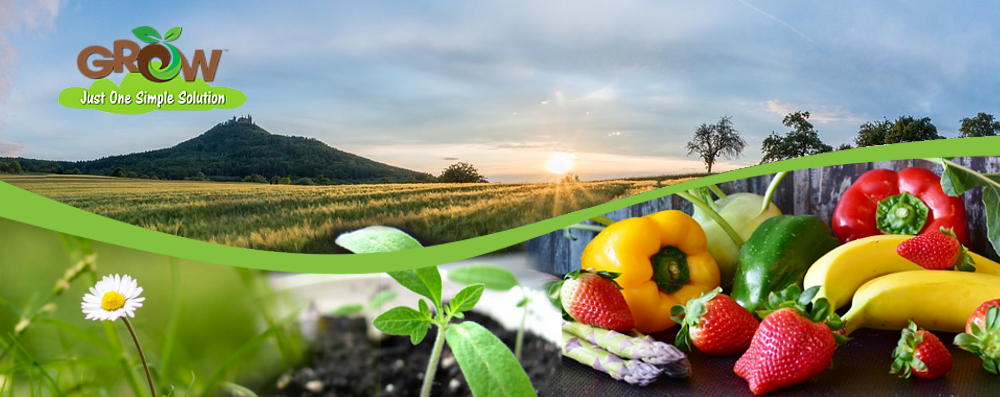Fertilizing Naturally: Unlocking the Power of Organic Fertilizer
Organic farming has gained significant traction in recent years as people become more conscious of the impact of synthetic chemicals on the environment and our health. As a result, there has been a growing interest in using organic fertilizers to nourish our plants and promote healthy soil. In this article, we will delve into the world of organic fertilizers, exploring the benefits they offer and how they can help unlock the power of natural, sustainable agriculture.
When it comes to organic gardening, it all starts with the soil. Organic soil is the foundation of a healthy garden, providing the necessary nutrients and microorganisms that support plant growth. Unlike conventional fertilizers, organic alternatives are derived from natural sources such as plants, animals, and minerals. These organic fertilizers are rich in essential nutrients that are slowly released, nourishing the soil and plants over time.
One family-owned and operated company that has been at the forefront of organic gardening is "Kellogg Garden" Products. With over a century of experience, their expertise and commitment to sustainable practices have made them a trusted name in the industry. As a company with deep roots spanning four generations, they understand the importance of organic soil and fertilizer in creating thriving gardens.
In the following sections, we will explore the different types of organic fertilizers, their benefits, and how to use them effectively in your garden. Join us as we delve into the world of organic fertilizers and discover the natural power they hold in promoting healthy, vibrant plant growth.
Benefits of Organic Fertilizer
Organic fertilizer offers numerous benefits for gardeners and farmers alike. By harnessing the power of natural substances, organic fertilizer promotes healthier soil, enhances plant growth, and preserves the environment.
First and foremost, organic fertilizer is derived from natural sources such as plant and animal matter. This means it contains essential nutrients in their purest form, providing plants with a balanced diet. Unlike synthetic fertilizers, which may deliver a high concentration of certain nutrients, organic fertilizer nourishes plants gradually, allowing for steady and sustained growth.
In addition to its nutrient-rich composition, organic fertilizer contributes to the long-term health of the soil. By improving soil structure and increasing its ability to retain moisture, organic fertilizer enhances root development and overall plant vitality. This helps to create a thriving ecosystem underground, supporting beneficial soil organisms like earthworms and bacteria.
Another distinguishing benefit of organic fertilizer is its positive impact on the environment. Organic fertilizers are typically produced through sustainable and eco-friendly methods that avoid the use of harsh chemicals. This not only reduces the risk of harmful runoffs that can contaminate water sources but also supports the overall ecological balance.
Overall, organic fertilizer is a natural and effective way to improve soil quality, nurture plant growth, and protect the environment. Its numerous benefits make it a preferred choice for those seeking sustainable and eco-conscious approaches to gardening and agriculture.
Kellogg Garden: A Legacy of Natural Fertilizers
For over four generations, Kellogg Garden Products has been a family-owned and operated company dedicated to the production of organic fertilizers. With a deep-rooted history in organic soil and fertilizer, Kellogg Garden has established itself as a pioneer in the industry.
Since its inception, Kellogg Garden has been committed to unlocking the power of organic fertilizer. The company firmly believes in harnessing the natural elements of the earth to create sustainable and environmentally friendly products. By utilizing organic materials such as compost, manure, and other plant-based nutrients, Kellogg Garden ensures that their fertilizers provide essential nutrition to plants without the use of harmful chemicals.
Kellogg Garden’s commitment to producing organic fertilizers stems from their understanding of the importance of healthy soil. They believe that organic soil, enriched with beneficial microorganisms and natural substances, is the foundation for vibrant and thriving gardens. By using their products, gardeners can enhance the soil’s fertility, improve water retention, and promote the long-term health of their plants.
As a family-owned company, Kellogg Garden takes pride in its rich legacy and sustainable practices. They understand the significance of their role in preserving the environment for future generations. By relying on the power of organic fertilizer, Kellogg Garden continues to provide gardeners with effective and eco-friendly solutions to nourish their plants.
By choosing Kellogg Garden’s organic fertilizers, gardeners can not only cultivate beautiful landscapes but also contribute to a greener and more sustainable planet. With a legacy rooted in natural fertilizers, Kellogg Garden remains at the forefront of the organic gardening movement, serving as a trusted name in the industry.
Tips for Using Organic Fertilizers
-
Soil Preparation:
Preparing your soil before applying organic fertilizer is essential to maximize its effectiveness. Start by loosening the soil with a garden fork or tiller, ensuring it is well-aerated. Remove any weeds or debris that may hinder nutrient absorption. Additionally, consider conducting a soil test to determine its pH level and nutrient deficiencies. This information will help you choose the right organic fertilizer and apply it accurately to meet your soil’s specific needs. -
Proper Application:
When applying organic fertilizer, avoid placing it too close to plant stems as it can cause root burn. Instead, spread the fertilizer evenly over the soil surface, extending it up to the drip line of your plants. This will ensure that the nutrients are distributed effectively to the root zones. To avoid nutrient runoff, gently work the fertilizer into the top layer of soil using a rake or garden fork. Remember, organic fertilizers release their nutrients gradually, so over-application can potentially harm your plants. -
Timing and Frequency:
Timing and frequency are crucial when using organic fertilizers. Apply them during the appropriate season for your plants’ growth, such as early spring for vegetables or late fall for trees. Regularly monitor your plants for signs of nutrient deficiencies, and if necessary, reapply the organic fertilizer in small doses to provide a continuous supply of nutrients throughout the growing season. Avoid overfeeding, as it may lead to excessive vegetative growth and reduce fruit or flower production.
Remember, organic fertilizers are a sustainable and environmentally-friendly choice for nourishing your plants. By following these tips and understanding your soil’s specific requirements, you can unlock the power of organic fertilizers to promote healthy growth and bountiful harvests.





